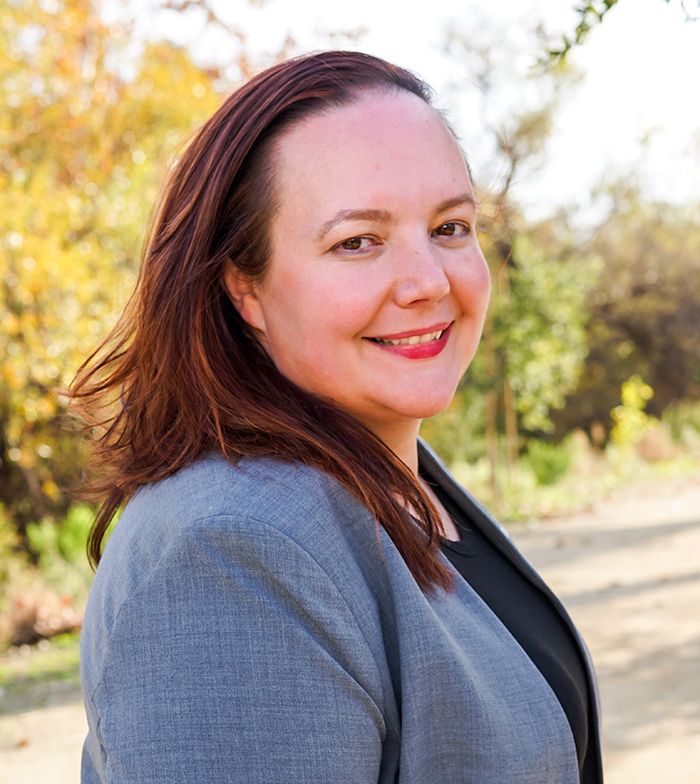Celebrating Women’s History Month 2024 with Freeman’s Janet Dell and Maverick’s Jessica Reinhardt

Celebrated every March, Women’s History Month is an opportune time to celebrate the female achievers of the trade show and events industry. In this second in a series of exclusive interviews with several outstanding female industry professionals, we had the pleasure of speaking with Janet Dell, president and COO of Freeman, and Maverick Payments Creative Director Jessica Reinhardt, to find out how their organizations are supporting women, what they advise for the next generation of female leaders and who are the up-and-coming women leaders to watch in our industry.
Janet Dell, President, Freeman
Current role: Dell oversees Freeman’s long-term strategy execution across the globe. She oversees Freeman’s major lines of business and ensures the company meets the needs of our various customer segments. At Freeman, Janet has held multiple C-level roles and is named CEO successor, starting July 1, 2024. Under her leadership, Freeman continues to identify key partnerships and adapt its business models for a dynamic marketplace.
Back story: Before Freeman, Dell served as CEO of Marsh ClearSight, a global company in risk, safety and claims management software. Prior to leading Marsh Clearsight, she served as Marsh’s COO of Global Sales, where she was responsible for driving organic growth. During her tenure as Marsh Global Sales COO, the company’s annual new sales topped more than $1.2 billion and global new business doubled.
Woman to Watch: Dell has been recognized as a Woman to Watch by Business Insurance magazine and has received several awards for product technology innovation. She is a proud graduate of the University of Wisconsin-Madison, where she earned a business degree in finance, investment and banking.
What are you most proud of in terms of how your organization supports women?

Freeman is — and has always been — purpose-driven and guided by our values, and you can see this reflected in our people and programs. It’s why Freeman has been featured on Forbes Best Employers for Women for multiple years – our efforts around career development, working conditions, salary, healthcare, etc., for women have set the bar in our industry and beyond.
More than a decade ago, we began to directly invest in the growth, development and advancement of women at Freeman. Today, you can see those direct results when you look at our leadership team, including our executive team and board of directors, led by Carrie Freeman Parsons as chair. We also have a highly active and empowered Women’s Leadership Development employee resource group that focuses on creating an environment where women will advance and thrive at Freeman. This includes the overall wellbeing of our employees, including paid parental leave (14 weeks for women/six weeks for men), breastmilk shipping programs for traveling parents, as well as consistent access to healthcare regardless of where in the U.S. they live.
What do we as an industry need to do next to accelerate gender equity and inclusion?
When employees look to their leaders, they should see both a leadership team that represents them, as well as a team that actively invests in their development and success. As an industry, we need to reflect on and act where we can break down barriers to progress by reflecting on key drivers – mainly, consider all aspects of the employee journey when building your strategy. For example, where are you recruiting from? How are you developing and retaining your current employees? And often most overlooked: How are you supporting re-entry to the workforce?
Freeman’s talent acquisition strategy includes alliances with diverse organizations – particularly those that are female-led – with connections to more than 200 organizations, including Women for Hire. We engage our employee resource groups (ERGs) — at Freeman they’re referred to as business resource groups (BRGs) — to make connections with diverse candidate pools. We also look to stay-at-home parents, military veterans and those who are shifting careers or changing industries – really, any women who have taken an extended leave of absence and want to get back into the workforce – and provide industry-specific training and support in a way that creates connection, belonging and reflects our culture and purpose.
Celebrated every March, Women’s History Month is an opportune time to celebrate the female achievers of the trade show and events industry. In this second in a series of exclusive interviews with several outstanding female industry professionals, we had the pleasure of speaking with Maverick Payments Creative Director Jessica Reinhardt, who will oversees exhibits at 10 events in 2024, to find out how her company is supporting women and what we as an industry can do to accelerate gender equity and inclusive.
Jessica Reinhardt, Creative Director, Maverick Payments

Current role: Reinhardt is the creative director for Maverick Payments, a privately held, family-owned, payment processor and fintech company based in Calabasas, Calif.
Backstory: Reinhardt has worked in marketing, communications and experiential spaces for the past 15 years across multiple industries.
Giving back: She is active in the payments industry and her community, including serving on the Midwest Acquirers Association Advisory Board, volunteering with Paytech Women and sitting on her local City Planning Commission.
Events in 2024: Maverick Payments will exhibit in about 10 events this year. The largest is Transact, which will be held April 17-19 at Mandalay Bay Convention Center in Las Vegas. The company has also previously exhibited at Money 20/20 in Las Vegas.
Outside of work: In her spare time, you can catch her at a concert or in the garden.
What do we as an industry need to do next to accelerate gender equity and inclusion?
The event, conference and experiential industries are comprised of a majority of women, and yet there are still significant gender, leadership and payment gaps. Is there a proliferation of silent, unpaid or underpaid labor among contract workers or lower-level project managers? Are we as an industry asking the right questions regarding wage and opportunity gaps? I think it’s important to acknowledge that inequity exists at all levels of event industries and ancillary organizations, and to take meaningful steps toward achieving a more equitable playing field — and that begins with having difficult conversations. More importantly, it involves listening to and empowering individuals via transparency — wage, education and creating/promoting long-term career paths.
What are you most proud of in terms of how your organization supports women?
I wear a lot of hats at my organization — trade shows and event production are part of a larger communications strategy I shape and manage. The payments industry has historically been a male-dominated industry. When our VP of client services and I pointed this out to our COO and asked for our company to get involved in Paytech Women — a female-led organization that promotes women in the payments industry — he enthusiastically agreed.
Since becoming involved with Paytech Women and other industry-wide efforts to promote equity and inclusion, our team has grown to include a near equal number of female employees, with a significant and still growing number in management or supervisory positions. Every year, we have expanded our involvement and make a conscious effort to promote, retain and recruit women within the payments industry.
To celebrate this year’s International Women’s Day, we were proud to announce our largest cohort of new Paytech Women members. On a larger scale, this effort has opened us up to being more involved within the larger community of the payments industry and has garnered the attention of applicants as we build out our team.
Don’t miss any event-related news: Sign up for our weekly e-newsletter HERE, listen to our latest podcast HERE and engage with us on LinkedIn!


Add new comment